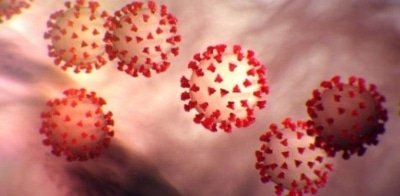New Delhi, April 30 (IANS) The novel coronavirus (COVID-19) is behaving weirdly and it appears that it has an intelligence much stronger than other related viruses, according to an Indian researcher who recently created a molecule that has the potential to be developed into a drug that can cure Acute Respiratory Distress Syndrome (ARDS) in COVID-19 patients.
Speaking to IANS, Dr Subhabrata Sen, Professor, Department of Chemistry at Shiv Nadar University in Greater Noida, said that they hope their therapeutic approach will unravel solutions against maladies associated with acute respiratory distress syndrome.
His team found a set of New Chemical Entities (NCEs) with the ability to cure Acute Respiratory Distress Syndrome (ARDS) or Acute Lung Injury (ALI) induced by COVID-19 (SARS-CoV-2) or other Severe Acute Respiratory Syndrome (SARS) and Middle East Respiratory Syndrome (MERS), which are also caused by coronaviruses.
The two-fold strategy devised by the research team involved the application of the NCEs to inhibit attachment, entry and infection of the new SARS-CoV-2 through a known target on the virus and co-administration of a known drug (that modulates a set of hormonal receptors in human) and these NCEs to attenuate ARDS caused by a novel coronavirus.
“The new molecule that we have discovered is based on an indigenous ligand in the human body. In general, one of the disadvantages of small molecule therapeutics is that human body considers them as xenobiotic. Once they are administered in the system, the body tries to eliminate them quickly, through enzymatic reactions primarily in the liver,” Dr Sen explained.
“The advantage of developing small molecules based on indigenous ligands is that the body accepts it more thinking as its own. Consequently, the molecule has lesser chances of getting excreted thereby gets more time to achieve its therapeutic purpose,” he told IANS.
The research team has filed a provisional patent in India to protect the new chemical entities.
They believe their therapy would not only prevent COVID-19 from affecting a person’s lungs but will also address lung injuries already inflicted by the virus, in cases the ventilators are not bringing much relief to COVID-19 patients suffering from ARDS.
Responding to the question on a human clinical trial, he said: “Our aim to start the animal trial by next month and then have the compounds ready for the human trial by the end of this year.”
Speaking on the COVID-19 vaccine, Sen said that it is very difficult to say anything at this point of time.
“One of the ways to discover a vaccine involves administering a small fragment of the virus or a viral protein inside the human body to stimulate an immunological response. The trial by Professor Sara Gilbert’s team in Oxford University started a week ago, so until a month goes by, nothing can be said with certainty,” he informed.
According to Sen, the lockdown has helped India to curb the spread of COVID 19.
“Lockdown is a strategy to slow down the pandemic so that the government gets enough time to prepare for the worst-case scenario, which is yet to come,” the professor added.
–IANS
bu/na
